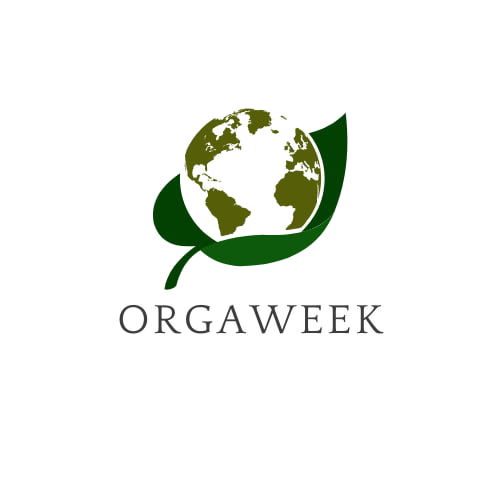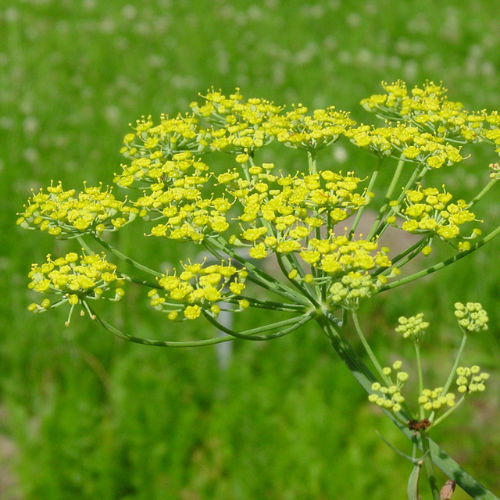Fennel (Foeniculum vulgare)
- Traditional Digestive Aid: Celebrated for its powerful digestive, carminative (gas-relieving), and anti-inflammatory properties.
- Aromatic Versatility: Features a sweet, anise-like, warm, and aromatic flavor, perfect for teas, cooking, and natural flavorings.
- Key Components: Rich in Anethole (60−80%) and Fenchone (5−15%), contributing to its effectiveness and aroma.
- Multi-Format Availability: Offered as Herbal Distillate (Aragh), Herbal Infusion (Tea), Herbal Extract, and Dried Seeds.
- Certified Organic Quality: Sourced from certified organic farms, ensuring maximum potency and purity.
Review / Detailed Description
Fennel (Foeniculum vulgare): An Ancient Herb for Modern Wellness
Fennel, botanically known as Foeniculum vulgare, is a hardy perennial herb from the Apiaceae family. For centuries, it has been a staple in culinary arts, medicinal traditions, and natural remedies worldwide. Its aromatic seeds and feathery leaves are the most valued parts, often used to create a distinctly sweet, anise-like, and warm flavor profile.
The therapeutic reputation of fennel is centered on its powerful digestive benefits. It is widely used to aid digestion, relieve bloating, alleviate gas (carminative), and offer strong anti-inflammatory support. Furthermore, fennel is known to support respiratory health, ease menstrual discomfort, and provide essential nutrients and flavonoids. Its pleasant aroma and antimicrobial qualities also make it a valuable ingredient in cosmetics and oral care products.
At Organikweek, our Fennel is sourced from certified organic farms and is harvested at peak maturity. This careful process is designed to preserve its potent active compounds, natural aroma, and maximum effectiveness. Our products are rigorously checked to ensure they comply with EU herbal safety regulations and international standards (ISO, organic certifications) before export.
Packaging and Availability: We offer a comprehensive range of packaging options to meet diverse needs. Bulk customers can choose from ∼25 kg PP Bags with food-grade liners for dried fennel seeds or ∼20−50 L HDPE Drums for distillates and extracts. Retail options include individually packed Herbal Tea Bags, ∼50 g or ∼100 g Eco-friendly Sachets of dried seeds, ∼100 ml or ∼500 ml Plastic Bottles of Herbal Distillate (Aragh), and convenient ∼30 ml Plastic Dropper Bottles of Herbal Extracts.
Specifications Table
| Feature | Detail |
| Form | Herbal Distillate (Aragh), Herbal Infusion (Tea), Herbal Extract, Dried Seeds |
| Aroma & Taste | Sweet, Anise-like, Warm, Aromatic |
| Applications | Herbal Teas, Digestive Aids, Culinary Spices, Natural Flavorings, Women’s Health Remedies, Cosmetics Industry |
| Shelf Life | 18−24 months (depending on storage) |
| Availability | Bulk & Retail |
| Storage Conditions | Store at 15−20∘C in a cool, dry, and airtight environment, protected from direct sunlight and moisture. |
| Export Status | Complies with EU herbal safety and international standards. Undergoes microbial testing and purity checks. |
Nutritional Values per 100g:
| Component | Value |
| Energy | 345 Kcal |
| Protein | 16 g |
| Carbohydrates | 52 g |
| Dietary Fiber | 40 g |
| Essential Oils | 2−6% |
| Active Compounds | Anethole (60−80%), Fenchone (5−15%) |
| Flavonoids | 250−400 mg |
| Vitamin C | 21 mg |
| Calcium | 1196 mg |
| Magnesium | 385 mg |
| Potassium | 1694 mg |
| Iron | 18.5 mg |
| Manganese | 6.5 mg |
Customer Reviews
Reviews
Clear filtersThere are no reviews yet.
Online Sports Nutrition and Natural Dietetics.
Chances are there wasn't collaboration, communication, and checkpoints, there wasn't a process agreed upon or specified with the granularity required. It's content strategy gone awry right from the start. Forswearing the use of Lorem Ipsum wouldn't have helped, won't help now. It's like saying you're a bad designer, use less bold text, don't use italics in every other paragraph. True enough, but that's not all that it takes to get things back on track.
The villagers are out there with a vengeance to get that Frankenstein
You made all the required mock ups for commissioned layout, got all the approvals, built a tested code base or had them built, you decided on a content management system, got a license for it or adapted:
- The toppings you may chose for that TV dinner pizza slice when you forgot to shop for foods, the paint you may slap on your face to impress the new boss is your business.
- But what about your daily bread? Design comps, layouts, wireframes—will your clients accept that you go about things the facile way?
- Authorities in our business will tell in no uncertain terms that Lorem Ipsum is that huge, huge no no to forswear forever.
- Not so fast, I'd say, there are some redeeming factors in favor of greeking text, as its use is merely the symptom of a worse problem to take into consideration.
- Websites in professional use templating systems.
- Commercial publishing platforms and content management systems ensure that you can show different text, different data using the same template.
- When it's about controlling hundreds of articles, product pages for web shops, or user profiles in social networks, all of them potentially with different sizes, formats, rules for differing elements things can break, designs agreed upon can have unintended consequences and look much different than expected.
This is quite a problem to solve, but just doing without greeking text won't fix it. Using test items of real content and data in designs will help, but there's no guarantee that every oddity will be found and corrected. Do you want to be sure? Then a prototype or beta site with real content published from the real CMS is needed—but you’re not going that far until you go through an initial design cycle.





Reviews
Clear filtersThere are no reviews yet.